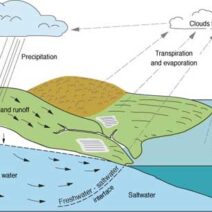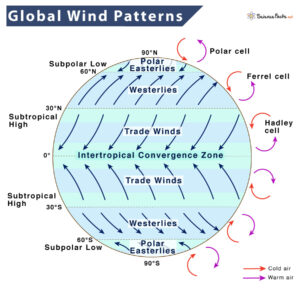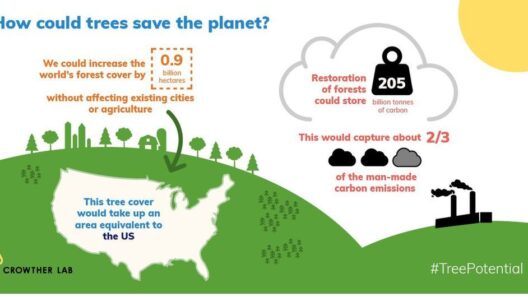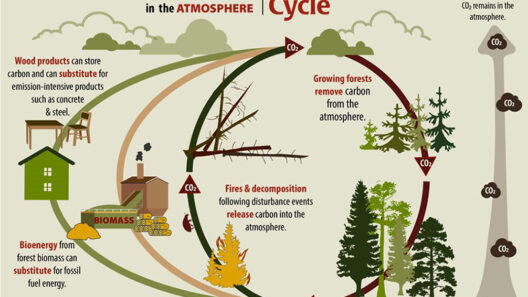The digital age has democratized knowledge, allowing anyone with an internet connection to access a wealth of information on topics spanning various disciplines. For those who harbor a growing concern for the planet’s environmental state, numerous online resources offer invaluable insights into climate issues, solutions, and advocacy. Herein lies a curated selection of the five paramount websites every climate-conscious reader should bookmark, unlocking layers of understanding and providing avenues for action.
1. Climate.gov
Acting as a beacon of scientific literacy, Climate.gov is a comprehensive portal dedicated to increasing public understanding of climate science. Managed by the National Oceanic and Atmospheric Administration (NOAA), this resource provides meticulously curated articles, interactive graphics, and educational tools accessible to diverse audiences—from novices to seasoned researchers. The infusion of real-time data and cutting-edge climate models appeals to those who seek a granular understanding of atmospheric phenomena, including how anthropogenic activities have escalated carbon emissions and affected weather patterns. The importance of scientific literacy cannot be overstated, as it lays the groundwork for informed decision-making both individually and collectively.
This site champions transparency and engages users through its readily digestible reports, revealing the complexity of climate systems while asserting the necessity of urgent action. Its commitment to demystifying the often intricate language of climate science resonates with readers who understand that knowledge equips them to advocate for more resilient policies and practices in their communities.
2. The Guardian: Environment Section
As one of the foremost global news outlets, The Guardian’s Environment section serves as a powerful conduit for environmental journalism. It presents current events, investigative pieces, and op-eds addressing climate change’s multifaceted repercussions across society. The articles often dissect not just the environmental impact, but also the socioeconomic dimensions intertwined with ecological degradation—elements such as climate justice, policy implementation, and grassroots activism.
Readers are privy to in-depth analyses that provoke critical thought and engage discussion surrounding initiatives like carbon pricing, renewable energy innovations, and conservation efforts. By presenting stories that spotlight marginalized voices affected by climate change, The Guardian also fosters an understanding of equity in the climate narrative. Bookmarking this section allows readers to stay abreast of pivotal developments and empowers them to become stewards of environmental justice and allies in worldwide movements.
3. EcoWatch
EcoWatch is a dynamic platform that thrives at the intersection of environmental news, advocacy, and sustainable living. Dedicating its resources to empowering individuals with knowledge and practical tools, EcoWatch offers compelling content ranging from breaking news on climate legislation to actionable tips on reducing one’s carbon footprint. This holistic approach appeals to eco-conscious consumers eager to effect change in their daily lives.
Among its myriad offerings, EcoWatch features attention-grabbing lists, such as the “Top 10 Green Products” or “Best Sustainable Brands,” appealing to shoppers’ ethical considerations. The site also includes inspiring success stories of communities and organizations spearheading innovative projects, thereby building a narrative of hope and resilience that is often overshadowed by the stark realities of climate change. Bookmarking EcoWatch is tantamount to integrating sustainable practices into one’s lifestyle—encouraging individual action while fostering a collective spirit of environmental stewardship.
4. Science for Global Policy
For those ardently interested in the nexus between scientific research and policy formation, Science for Global Policy (S4GP) is an essential resource. This site is a think-tank of sorts, synthesizing scientific findings into actionable insights that guide legislative endeavors. It serves as a crucial bridge between the scientific community and policymakers, facilitating discussions that synthesize empirical research with the practicalities of governance and implementation.
S4GP’s array of publications—including blogs, reports, and newsletters—allow readers to grasp the ever-evolving landscape of climate policy. For climate advocates and decision-makers, understanding the scientific underpinnings of climate forecasts and long-term impacts is crucial in crafting effective regulations. The content elucidates complex ideas while maintaining accessibility, making the nuances of climate policy digestible for a broader audience. Bookmark this site to keep well-informed of the latest interdisciplinary dialogues shaping the future of global environmental governance.
5. 350.org
Born from an urgent need to address climate inaction, 350.org is a hallmark of grassroots activism. With a name derived from the scientifically backed safe atmospheric carbon dioxide level of 350 parts per million, this organization seeks to mobilize citizens toward measurable environmental action. The website provides a wealth of resources, including campaigns, local events, and actionable guides intended to engage individuals and communities directly in the climate movement.
What sets 350.org apart is its focus on community-building. Through the lens of collective action, it emphasizes the importance of local engagement while fostering a global network of climate activists. The website’s rich storytelling element showcases grassroots initiatives that share best practices and inspire them to advocate for renewable energy and climate justice. By bookmarking this site, readers can become participants in a global movement, amplifying their voices and cultivating connections with like-minded individuals.
In conclusion, as the climate crisis looms, the importance of informed and engaged citizenry cannot be overstated. These top five websites serve not only as repositories of knowledge but also as platforms for empowerment—transforming passive readers into active participants in the quest for sustainability. By bookmarking these invaluable resources, individuals commit themselves to an informed journey towards environmental advocacy, shaping a future where ecological integrity prevails.





